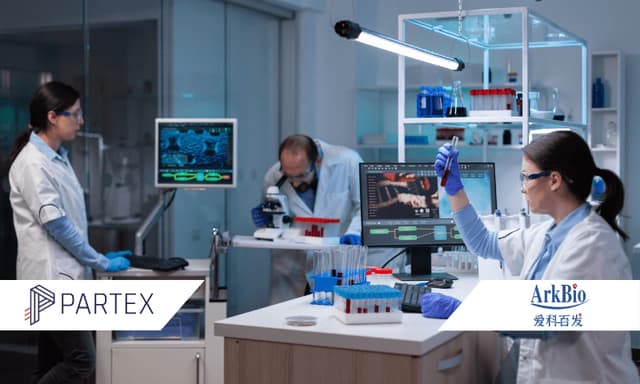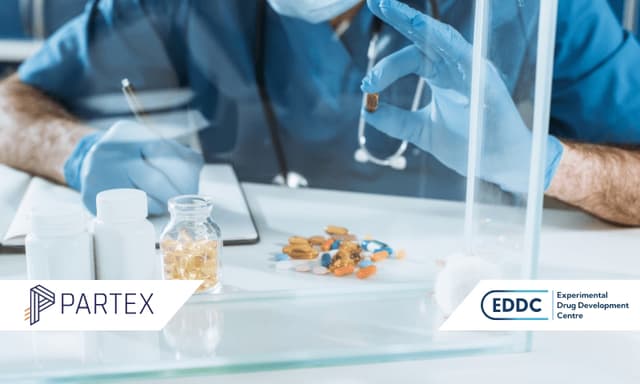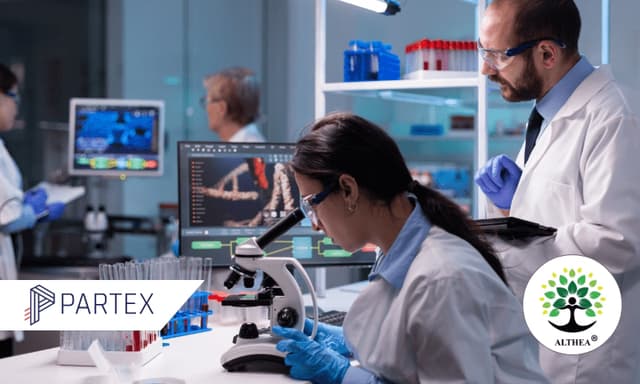Clinical Informatics tells us that: “Every year in the U.S., approximately 2 million patients participate in roughly 3000 clinical trials; six million patients are needed to meet U.S. recruitment goals. Consequently, up to 90% of trials are delayed or over budget”. Experts blame the lack of data available - to both patients and researchers - to explain why only 5% of cancer patients, for example, end up enrolling in clinical trials. A study from Carnegie Mellon University and Albert Ludwig University in Germany predicts that “AI could cut the cost of drug discovery by about 70%” and Krishna Yeshwant, general partner at Google Ventures, estimates “AI would cut (clinical trial) costs by 90 percent.”
Artificial intelligence seems like the perfect solution, but Zikria Syed writes in MedCityNews that “clinical trial technologies haven’t changed much since the current categories — clinical trial management systems, electronic data capture, and interactive voice response, — were established in the late 1990s.” A recent Deloitte study also that tells us “a number of clinical trial activities still use the same processes as in the 1990s.” In a sector that is usually at the forefront of technology – biotechnology - it is hard to believe this is happening. I spoke to six innovators who were tackling the massive problem head on – scientists and entrepreneurs working to bring clinical trials to the people who need them – to find out what they are doing to solve the serious innovation problem.
The list of people is impressive for the diversity of solutions they’re offering to clinical trials: Anna Huyghues-Despointes, Head of Strategy, Owkin; Simon Smith, Chief Growth Officer, BenchSci; Leila Pirhaji, Founder & CEO, ReviveMed; Shai Shen-Orr, Founder, Cytoreason; and Daniel Jamieson, CEO Biorelate and Gunjan Bhardwaj, Founder & CEO, Innoplexus. Additionally we spoke to consultant Dr. Chrysanthi Ainali, Co-Founder Dignosis and Instructor for the KNect365 Learning Course AI & Real World Evidence for Clinical Trials to ask her thoughts on the specific challenges AI startups in clinical trials face.
“Healthcare brings great challenges for a technology company. It is inherently conservative and risk averse - Hippocratic Oath: 'first, do no harm'" says Simon Smith, Chief Growth Officer at Benchsci. He continues:"There is a tremendous amount of bureaucracy. There is a healthy amount of skepticism for new, potentially unproven solutions—these are, after all, scientists and trained medical professionals you're talking to. And data is often locked away in silos, protected by privacy laws and proprietary health record formats, even when patients are happy for it to be shared. Such challenges keep a lot of innovators out of the market. But if you believe strongly in your mission and have a great product, you can navigate the challenges and make a huge, positive impact on the world.”
Gunjan Bhardwaj, Founder & CEO, Innoplexus confirms Smith’s assessment: “Conversations with colleagues, whether AI experts or outsiders without expertise, are always very stimulating and exciting. For most people without exposure to AI, AI is still a term that is not really tangible. Therefore they are very interested and find what we do very intriguing. Looking at being an AI startup in healthcare, the challenges we face are quite similar to the ones other AI companies face - from structuring unstructured data to building large enough training data sets to train the AI. These are the points that relate to all AI companies. But what sets us apart from other sectors is that the data we handle is highly complex and often subject to very strict regulations.”
Anna Huyghues-Despointes, Head of Strategy, Owkin agrees that being an AI healthcare startup is both “exciting and challenging”. She continues “We build AI technologies on clinical data and therefore should comply and be at the forefront of preserving data privacy and security. The sector is heavily regulated and therefore closing partnerships can be long. But it is worth it if we can improve patient outcome. We believe that by combining large amounts of medical data with advanced machine learning technologies, we can better understand diseases and heterogeneity of treatment effects. This will be the cornerstone of modern data-driven approaches to precise drug development and discovery. On this real-world clinical data, we build machine learning algorithms to predict toxicity/resistance/sensitivity to treatments and diseases. We have identified these models as those which bring the most added value in the strategic optimization of clinical trials. This will fast-track the best research ideas, improving patient outcomes.”
That heavy regulation around privacy is not the only impediment to the work many of these startups do. Leila Pirhaji, Founder and CEO of Revivemed explains: “Data sharing is a problem. Data is a currency. When you use data there is the question of who owns what, who owns the IP, who owns the results.”
However with all the challenges come incredible opportunities Pirhaji points out: “We love it. It’s a new era. We are a pioneer in the intersection of AI and metabolomics space. The opportunities for us are growing, it’s a really good time to be in the space. It’s about the timing too, the computing power to do what we do was not available ten years ago. When you are the first, however, there is uncertainty. The reward is that we are the first.”
Daniel Jamieson, CEO of Biorelate, agrees with Pirhaji’s sentiment. “Being an AI startup in drug discovery can be both a challenge and an advantage compared to other tech companies. It’s a challenge in that AI on its own is a very difficult discipline. Combining this with drug discovery only broadens the problem space. It’s an advantage in that the work you’re involved in tends to have greater meaning and that added purpose makes recruitment easier, helps with things like PR and most of all is inspiring to our team on a daily basis.”
“AI technologies are a reality, but the question is how we utilize them to make precision and personalized medicine achievable in our lifetime” asks Dr. Chrysanthi Ainali. Ainali continues: “Conservatism within the healthcare sector as well as unwillingness to risk new technology that does not provide immediate effect are the main challenges to be tackled. A major challenge will be to understand precisely where AI can help and what its current limitations are. Education of the clinicians as well patients is the first step in order to adopt the AI technologies. Healthcare providers, patients and entrepreneurs need to have a deep understanding of the context into which you are trying to introduce the technology so as to have a smooth implementation and integration into healthcare.”
AI in clinical trials is an urgent need in order to solve immediate real life challenges for real life patients. Dr. Ainali Chrysanthi explains: “Compared to other areas of healthcare, the goal of AI applications in clinical trials will be to close the gap between what patients have access to right now and what they need in the long-term to live healthier, more informed lives. But this needs to be done slowly and with caution to take into consideration various regulatory concerns such as patient privacy and data security.”
In Deloitte’s “Digital R&D: Transforming the future of clinical development” the authors report: “digital transformation is a complex, resource-intensive, and lengthy undertaking. But the rewards can be significant: Early adopters can benefit from better access to and engagement with patients, deeper insights, and faster cycle times for products in development.” The companies profiled here are certainly in line to gain that competitive advantage of being first movers. Daniel Jamieson, CEO of Biorelate: “We’ve worked with the likes of AstraZeneca, 4D Pharma and eTherapeutics to name but a few. These are companies engaged in early stage drug discovery and are our preferred types of customers. Now that we are launching products we are scaling up our operations and engaging with more clients like this and also in other verticals involved in R&D. These are all typically using cumbersome, inadequate and difficult to use systems that are unfortunately endemic across biomedicine. We are beginning to shake this up.”
Another company shaking things up is ReviveMed. Their innovative idea to focus on metabolites is set to revolutionize how physicians will be treating disease in the not so distant future. CEO and Founder Leila Pirhaji gives us a crash course on metabolomics: “At ReviveMed we are using AI for drug discovery, by uniquely leveraging data from metabolites, which are small molecules in the human body. There are thousands of diseases with no treatments and thousands of existing drugs that may be potential treatments for those diseases that could save millions of lives. In the last decade, AI platforms have developed to solve this problem using genomic data, but genomic data alone is not enough.
DNA and RNA are really far from what we observe in disease symptoms. DNA will transcribe to RNA then RNA will translate to proteins. These proteins then interact with thousands of metabolites in the human body. Metabolites are small molecules like glucose, cholesterol…. The interactions between metabolites and proteins lead to what we observe in disease symptoms, they can tell you exactly what happens in a disease. Now at ReviveMed, we are able to use metabolomics to solve this puzzle.
To make an analogy and put what we do in context, metabolomics is where genomics was twenty years ago. Current platforms are only able to characterize less than five percent of them; there are over 10s of thousands of metabolites, and they are very diverse in their structures. Therefore, experimental characterization of all human metabolites is expensive and time-consuming. Our team at MIT developed an AI algorithm to overcome these challenges which we are licensing at ReviveMed.”
Taking chances and doing things that have never been done before is the cornerstone of how many of these startups operate. Simon Smith of Benchsci: “In a nutshell, we've used machine learning to create something that never existed before: a way to search through and filter research reagents with equivalent ease and precision to conducting an Amazon product search, despite the fact that—unlike with products on Amazon—key product information comes not from vendors, but the scientific literature. It's crowdsourced and, thanks to our AI, parsed and reassembled in an intuitive way.
Our biggest competitors are traditional scientific search engines such as PubMed. But while these are incredible resources, they function in a completely different way—keyword searches, primarily—that's less useful to researchers for finding information to inform reagent purchases.”
Shai Shen-Orr, Founder of Cytoreason echoes the optimism of his peers in this group of scientists and entrepreneurs: “Healthcare constantly provides a rich seam of needs for new approaches to bring value – especially in our niche of drug discovery and development. Productivity in R&D is declining and costs and timelines increasing. Novel approaches that can disrupt this paradigm will always have a chance of success. If you can demonstrate that you can improve target identification and validation, reduce the risk of clinical trials, and help focus on the right indications and patients you have an important story to tell.
You need to be very focused on the area you want to disrupt, very transparent in your processes (no black boxes to hide in) and very thorough in thinking through how your approach can impact the problems being faced. I think this is something that CytoReason, by design, has been good at.”
Shen-Orr continues: “Healthcare is a very dynamic industry, where very big changes, and big dollar rises, can happen very quickly. A quick look at the take-up of biologics demonstrates the speed values can skyrocket – it far outpaced the transition to smartphones for instance.”
There is a lot of negative news about digital health startups imploding lately, but ultimately these hardy pathfinders have been paving the way for success for those who come after them. Outside-the-box strategies are being developed in order to succeed in healthcare, as digital tech innovator Paul Yock succinctly characterized the sector: “The ‘move fast and break things’ approach that works in tech doesn’t translate well to healthcare.” Shai Shen-Orr illustrates his unique startup strategy: “We took a long hard look at the market and saw what was going on. We then made a strategic decision not to engage in activities that lay outside our domain of expertise; activities that take a long time before the success or otherwise of the company becomes apparent. Instead, we focused our time and resources on building our data and the technologies that help create our data – rather than software development and trials. The data we can produce can be validated very rapidly, speeding up significantly our access to the market. This is not an obvious route for a healthcare start-up.
The response from the market supports the decision we made. Our technology was licensed out of the Technion, with a large and long-term commercial project. We followed that up with further collaborations with top tier pharma companies – and there are more collaborations in the pipeline. So unlike most start-ups, we have been revenue generating since inception, have not been reliant on venture capital, and have a working productive and validated platform.
We have built our entire approach with a very clear focus on the immune system – the checkpoint for a multitude of diseases and their treatment, and still poorly understood at a system – cellular – level. We have a decade of research behind the technologies, the most extensive data sets that leverage data our collaborators would never have access to, and have a team of the highest caliber who combine to provide the right direction and investigation for our analyses to deliver the best insights.”
Dr. Chrysanthi Ainali advocates a cautious approach to AI startups, especially in light of the fact that major companies with enormous budgets are their competitors. Ainali explains: “AI is a huge opportunity in healthcare space, which is undergoing a major transformation. Adoption in the actual clinical trial process is still in early stages with a lot of startups developing disruptive AI technologies for early diagnosis, driving decisions in drug design, enrolling the right pool of patients for studies, and remotely monitoring patients’ progress throughout the study. However, the biggest barriers to entry for smaller startups streamlining clinical trials are that: Technologies are relatively new; the industry is more complex and regulated as well slow to adapt and tech giants like Apple, Google, Amazon etc. are developing similar products that might be difficult to compete, thus one will need to identify the correct point of entry and fit these systems seamlessly into existing workflows.”
While AI startups working in the clinical trials space may not have the visibility of an Apple or a Google, their cost saving benefits combined with their very specific sorts of expertise could provide a win for researchers and pharma companies. Gunjan Bhardwaj, Founder and CEO of Innoplexus explains: “Since we have automated the entire process of data processing from crawling to visualization, we can offer our products at a comparatively low price. This is because most competitors still annotate data manually. It drives the cost of a cured data ocean extremely high. Small biotechs, hospitals or research institutes cannot afford these costs - and that's where we come in.”
“Innoplexus has more than 250 highly skilled colleagues including PhDs, AI experts, Data Scientists and engineers spread across three countries. We combine German quality standards with vibrant Indian innovation culture. Our leadership team has more than 150 years of experience in technology and life science. This gives us a competitive advantage with the power of continuous innovation, being Artificial Intelligence best in class. We have a huge variety of clients – like (big international) pharma companies, biotechs, research organisations, hospitals, health insurance companies, and many more. On the one hand, we work together on projects with our client’s data engineers and data scientists to create custom use-cases. On the other hand, we can send you a login right away for immediate use of our products. We cover different therapeutic areas and indications spanning research, pre-clinical, clinical, regulatory and commercial stages of a drug, across therapeutic areas and indications.”
Daniel Jamieson, CEO of Biorelate describes their product’s evolution: “Biorelate started off the back of building the world’s first pain research database with Pfizer and was used to determine novel drug repurposing opportunities. We then continued as a services business, working closely with customers in early stage drug discovery to help advance their R&D using our state of the art technology. We have been building products alongside this work and have been delivering our service work through them. This has helped tremendously with achieving product market fit in a sustainable fashion.”
Benchsci offers the ultimate in cost savings - their tool is free to academic researchers. Simon Smith spells out his product’s benefits: “Researchers struggle to find antibodies. They get frustrated at the inefficiency of finding guidance on purchasing antibodies in the scientific literature. Then they discover BenchSci, and a lightbulb goes off. They immediately get it, then use it, then tell us how much it's helped them. And don't take my word for it. Just look on Twitter, Facebook, LinkedIn, or Instagram to see what people say. We don't have to convince them to use BenchSci. We simply say: we know your pain, we built a solution. And they immediately get it.
As with many startups, BenchSci started when our Chief Scientist, Tom Leung, encountered the problem himself. Tom struggled to find the best antibodies for his own experiments. He figured that something like BenchSci should exist. But when he couldn't find it, he thought that perhaps he could create it. From here, he recruited cofounders to provide the technical ability and business knowledge that complemented his domain expertise. And the rest is history. Or, rather, three years of hard work to get where we are. At BenchSci, we're laser-focused on a specific, widespread problem that delays biomedical research and makes it more expensive.
For non-scientists, I can provide an analogy. Imagine you wanted to bake a cake, but when you went to buy flour, there were 5 million options. And imagine that only a few of these options would work for your specific cake—depending, say, on the other ingredients and type of oven you're using. If you used the wrong flour, your cake would fail, wasting your time, and all the other ingredients. But, unfortunately, the flour manufacturers can't tell you which flour would be perfect for you, because every cake is slightly different, and they can't test their flour by baking every possible permutation. So how would you possibly know which flour to buy? Probably by seeing what other chefs have used for similar cakes. Right?
This is the case in biomedical research. There are, for example, more than 5 million commercially available research antibodies that researchers can use to measure the level of proteins in samples. To ensure they buy the right antibody for their specific experiments, they search through the scientific literature, and see what other researchers have used. This process can take days to weeks. Even then, it's not foolproof. Researchers still need to validate several antibodies to find one that works. Overall, the inefficiency can be hugely wasteful. Up to 50% of antibodies fail in experiments. Research projects can get delayed for months. Sometimes, researchers only find out deep into their research about a flaw with their antibody, negating months of work and investment, and potentially even resulting in the waste of precious tissue or cell samples. Oh, and by the way, antibodies are just one type of ingredient—called a reagent—that researchers use. So multiply this problem by all the reagents. Researchers may use 5 or more per experiment.
We use artificial intelligence to decode the world's biological data to reduce the time, uncertainty, and cost of biomedical research. Currently, this means that we (1) ingest data from open- and closed-access publications, vendors, and other sources; (2) use machine learning to decode and extract relevant information from this data pertaining to research reagents; and (3) make this information easily searchable in a user-friendly platform that provides results in an intuitive way for scientists.
Our customers are biomedical researchers who use reagents such as antibodies. It's a small group—probably around 350,000 active academic researchers, and 150,000 active industry researchers. But they're responsible for about $40 billion in annual reagent purchasing. And they're looking for better ways to do their important work. BenchSci is free for academic researchers, and a licensed SaaS product for industry researchers. We have users in more than 1,300 academic institutions globally, as well as 14 of the top 20 pharmaceutical companies.”
Anna Huyghues-Despointes, Head of Strategy, Owkin explains what sets Owkin apart, in a sector where there are already over 100 startups using artificial intelligence in drug discovery: “We have 2 main differentiators our tech stack and our network. We are developing state-of-the-art transfer and federated learning technologies to overcome the data sharing problem, building collective intelligence from distributed data at scale while preserving data privacy and security. We are federating the largest research network, connecting hundreds of institutions worldwide and fostering collaborations at an unprecedented level.
We have one product: Socrates. It is our proprietary software platform, installed on-premise or in the cloud, engineered to be used by clinicians and researchers (with advanced statistics skills or without any ML expertise) who build their own predictive ML models, on their own datasets, while benefiting from the integrated annotation platform, the autoML tools and zoo of pre-trained models, the predictive power boosted by transfer learning [and in the future: multimodal data integration, federated learning collaboration]. Our partners are oncology centers, hospitals, research institutions. Our clients are pharmaceutical companies. Our partners and clients are scaling their internal bioinformatics and ML resources as they understand the value of AI. They work with us for our expertise in ML applied to medical data and our research network.”
Daniel Jamieson of Biorelate relates how his competitors are often potential customers: “There are many interesting companies that could be perceived as competitors to us, although we typically find that these are potential customers as what we have is so unique. Our platform, Galactic AI, is very much focused on curating data from text, so we’re a text analytics company. However, the most important thing that we offer is a commitment to address clients from the perspective of their problem at hand. Problems like uncovering novel drug repurposing opportunities, investigating mechanism of action, sourcing expertise objectively, and knowledge intelligence. This is our bread and butter and parts of which we are now patenting.”
Shai-Shen Orr describes his company’s research journey and how it has given them a competitive edge: “We did a piece of work quite early on, in inflammatory bowel disease, which proved the capability of our concept. The search for an elusive blood-based (as opposed to tissue based and therefore not requiring a biopsy) pre-treatment marker for a specific type of therapy, in a major and highly competitive segment, had been going on for years, costing millions of dollars. In just a few weeks, we uncovered both a validated biomarker and a target – in a disease that is impacting millions of people! We clearly had something to build around.
Our approach offered the chance to create a computational model that can deliver the fast and accurate insights and hypotheses that are vital if you want to break the paradigm of drug development processes that take decades to complete and cost billions to conduct. Building on that we created disease and tissue models at a cellular level – cell-centered models - that act as a blueprint for immune activity, and which allows the integration of new data in a way that can deliver not just directional insights but also causal understanding of the cell, cytokine and gene relationships. Leveraging public and proprietary data we apply a multi-pronged technological approach that: Enable the rebuilding of cellular composition from bulk tissue data; is capable of normalizing inter-personal cellular variation and mapping back to culprit genes; allows for integration across data types; that brings the context provided by the body of known evidence; and that keeps your model learning and growing with every new data set.
It’s a kind of Waze GPS for the immune system. It not only knows which direction cellular traffic is operating in, it can also isolate the cause of hold-ups and navigate a way around them. In addition to building a clearer picture of what’s happening, it also enables you to squeeze enormous value out of single or smaller and imperfect data sets. These critical insights enable you to discover new targets, validate existing targets, understand mechanism of actions, stratify patients (and find the right markers), and plan indication selection and expansion in a much faster, more accurate way – and do so within weeks rather than months or years and at a much-reduced cost.”
Shai Shen-Orr points out how CytoReason differentiates themselves: “This is a young burgeoning industry overflowing with new companies appearing out of nowhere claiming to be a key driver of the AI revolution. There are many companies claiming to do what CytoReason does, and in a similar manner, but the reality on the ground is quite different. Our technologies, data and process are all unique and proven, but it is the three core principles upon which all our tech, data and process are built upon that really sets us apart. We deliver biology to biologists and avoid the black box – as the only company to focus on understanding the immune system at a system – or cellular – level, we replicate biological processes to answer biological questions, with validatable results based on a methodology and rationale that is transparent, understandable and applicable to the development process you need to impact. In this way you avoid the “black box” phenomena of data being poured into a mysterious algorithm and a requirement to take a leap of faith in the results.
Shen-Orr continues: “Continuous Improvement - We developed a learning model that gets richer and more accurate with every new data set (including clinical trial data that is normally a closely guarded secret), from every new collaboration – but that does so in a manner that maintains confidentiality of data and the questions and resulting answers being asked of, and generated by, your model.
Collaboration first, last and always – We have built our business around the needs of our collaborators and around the need to discover and deliver valuable IP to our customers – not to compete with them. As such we do not seek to build our own internal pipeline. This changes the way we do everything, because our success is intrinsically tied to the success of what we deliver to our collaborators.”
In an industry which is still reeling from a much publicized patent lawsuit, you would think biotech would become ever more secretive to avoid grey areas. On the contrary, many of these AI startups are built on a collaborative research ethos. Shai Shen-Orr, Founder of Cytoreason: “We have built our business around the needs of our collaborators and around the need to discover and deliver valuable IP to our customers – not to compete with them. We believe this is one of the key reasons why CytoReason is already working with our core customer group – leading pharma and biotech companies and prestigious research. In the case of one collaborator, their need was to harness collection, integration and learning from the data generated from multiple independent sites, hundreds of clinical trials and millions of data points. More importantly, given their focus, they needed an ability to be able to squeeze maximum insight from small and often imperfect data sets. CytoReason showed how this can be done revealing important new mechanisms of action that can direct future research efforts.
In another recent example, we presented an internal mechanism of action analysis that we did in atopic dermatitis. Using only a single data set and taking just 4 weeks we uncovered a new mechanism for a marketed drug. Our hypothesis was then cross-referenced against confidential clinical trial data, that had taken more than two years to gather and analyze. To the dismay of many in the room, their as yet unpublished data confirmed our findings exactly! So, without the approach brought by CytoReason the alternative would be to spend years and millions of dollars on traditional pre-clinical and clinical study methodologies – and still not fully understand the data or the context of that data in the bigger scheme of amassed knowledge. And in the end, still living with the prospect of increased clinical trial risk, longer odds of success and reduced R&D productivity.”
Personal experiences often fuel our life goals, and the ambitions of these scientists and startup entrepreneurs are no exception. Gunjan Bhardwaj, Founder and CEO of Innoplexus relates how a friend’s battle with cancer was a primary motivator for him: “The biggest difference (between healthcare startups and other tech startups) is the purpose – helping patients to get the best possible treatment. We already had several cases where friends, relatives and others came to us with a severe diagnosis and asked us for advice. Here you feel especially good if you can help patients directly with what you have created in recent years and with immediate feedback. Innoplexus is disrupting how data and analytics is produced and consumed. We are structuring the world’s unstructured information in an automated manner. To use the power of artificial intelligence, machines need the data to be structured. We always talk about digitization in healthcare. But there is so much knowledge that cannot be retrieved in real-time on a finger-tip if at all.
With the help of proprietary, patent-pending artificial intelligence, blockchain and big data analysis applications, we have crawled, aggregated, analyzed and visualized all public available structured and unstructured Life Science Data. A second approach is to enable a secure access to unpublished data. For this we use Blockchain. This opens data silos and democratize intelligence. We build the world’s largest Research Graph. We extract entities and relationships from billions of web pages automatically enabling real time analytics in context throughout the drug development value chain. Our experts trained our AI in the specific language used in life sciences, covering more than 26 million concepts and semantic associations in order to give our customers relevant insights through intuitive, interactive visualization. Thus, our customers can access all relevant clinical and medical data in a logical context, being constantly updated and delivered to the workstations of customers. On top of our data ocean we build use-case driven applications and offer standard products as well as customized solutions.
If a beloved family member or close friend becomes seriously ill, you want the best treatment and cure for them. This is how the idea of Innoplexus and its products came about. A few years ago, a good friend was diagnosed with cancer, and we were desperately looking for possible therapies. One finding was, that the internet provides a lot of knowledge – but the known search technologies were not sufficient enough to make it accessible. Consequently, we made it our task to develop new technologies and products.
AI and blockchain are only valuable if they solve real problems – like those we see in healthcare. Democratizing data can trigger a new paradigm of AI driven innovation in Life Science. At the same time, it will make access to information more equitable for all stakeholders. Once data is accessible, stakeholders will focus their efforts on creating effective therapies for better healthcare outcomes. That would truly be the biggest contribution of these disruptive technologies to mankind. That’s what we are striving towards day by day.
On the way to developing these technologies and products, we often and intensively collaborated with some of the largest pharmaceutical companies. This is how we have understood the pain points of the industry today. The cooperation has had a profound impact on product development, and we have increasingly focused our products on the real life challenges that stand in the way of affordable and effective treatments for patients.”
Simon Smith, Chief Growth Officer of Benchsi reflects on his company’s calling: “Healthcare offers unique opportunities and challenges…One of the biggest opportunities is to meaningfully improve people's lives. Imagine coming to work every day, knowing that what you do has the potential to benefit millions of people (or more). That you can play a part in saving and extending lives, in treating and curing disease. It keeps us focused and engaged.
The nice thing, in my opinion, compared to working in many other fields, is that even on a bad day, when things aren't going your way, you can feel good about your work. And about the people you work with, who are similarly passionate about making a positive difference in the world.”
Leila Pirhaji, Founder & CEO, ReviveMed best summarizes what everyone in this group sees as the definition of success in healthcare: “We do our best to make an impact, for us this is the success. That’s what we care most about, saving lives.”
Make sure you are ready for the AI disruption happening right now in clinical trials with our AI & Real World Evidence for Clinical Trials course taught by Dr. Chrysanthi Ainali happening this December in London! Dr. Ainali is a bioinformatician and consultant with expertise in the integration of AI technologies and techniques. She has a PhD in Machine Learning and Translational Medicine from King’s College London, where she focused on the development, validation, and application of Machine Learning algorithms to the integration of genomic data for biomarker identification, disease subtype identification, and patient stratification. In 2017, Chrysanthi founded DiGNOSIS to provide professional consultancy and data science services for pharmaceutical companies, and to pioneer the application of AI to clinical trials. Prior to founding DiGNOSIS, Chrysanthi worked for Thermo Fisher Scientific, where she drove the bioinformatics component of designing and developing clinical genetic tests, as well as the customer rollout of bespoke bioinformatics workflows.
Originally published in: Knect365

Frankfurt, Germany & Miami, FL, USA – March 17, 2025 – Partex NV and Fortress Biotech, Inc. (Nasdaq: FBIO) (“Fortress”), an innovative biopharmaceutical compan...

Frankfurt, Germany, 20th February, 2025 – Partex is pleased to announce a strategic collaboration with Princeton Drug Discovery Ltd (PDD), a leading biotech c...

Pune, [13-02-2025]: Pimpri Chinchwad University (PCU) reaffirmed its commitment to technological excellence and academic innovation by organizing a two -day Fac...

Pressemitteilung vom 08.01.2025 Die Amrit AG, ein Unternehmen der Partex Gruppe - einem führenden Anbieter von KI-Lösungen im Gesundheitswesen - gibt heute de...

Partnership aims to expand therapeutic potential of proprietary autotaxin inhibitor through AI-driven approach Frankfurt, Germany – Date – Partex, a leader in ...

Frankfurt, Germany, 3 rd June 2024, 9am CET Partex, a leading provider of AI-driven solutions in the pharmaceutical industry, is thrilled to announce i...

Frankfurt, Germany, 23 April 2024 – Partex, a leading provider of AI-driven solutions in the pharmaceutical industry, is thrilled to announce its partnership wi...

Frankfurt, Germany; 28 March 2024 – Partex Group, a pioneer in AI-driven drug discovery, announces a collaboration with Althea DRF Lifesciences, an established ...

During the German Cancer Congress 2024 in Berlin, the companies Innoplexus AG /Amrit AG, companies of Partex N.V., presented the results of a pilot project carr...

Frankfurt, Germany; 14 March 2024 Partex Group, a pioneer in AI-driven drug discovery, today announces a collaboration with global pharmaceutical giant Sanofi, ...


Innoplexus wins Horizon Interactive Gold Award for Curia App
Read More